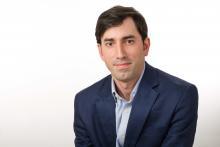The Irish Referendum and the Future of Catholicism
"It is my belief that this widespread Catholic response to Humanae Vitae led to a kind of declaration of independence on the question of sexual ethics. And it is this emerging sense of independence that stands in back of the referendum results."
Ireland is a Catholic country. The Church has filled a leading role in society not only in modern times, but ever since the early middle ages. One need only think of St. Patrick and St. Bridget, the great monasteries, and the beautiful works of art and literature like the Book of Kells or the Lindisfarne Gospels. It is surely an exaggeration to say that Western civilization owes its survival to Irish monasticism, but there is a kernel of truth embedded in that boast.
And in Ireland, the Catholic Church remains a lively institution. Although the Church never endorsed violent insurrection, it was still a source of sustenance and support for the Irish independence movement that finally prevailed in the 1920's. And today 84 % of Irish still profess the Catholic faith.
This is what makes the results of last week's referendum so stunning. Ireland is not only the first nation to approve of gay marriage by popular vote, but it did so against the background of an historically deep Catholic culture.
So what does this truly epochal event mean for the future of Catholicism? To answer that question, we need to take account of two main issues: the first is the priestly pedophilia crisis that struck Ireland especially hard; and the second is a general movement by the Catholic laity worldwide, over the last half century, to make for themselves a sexual ethic that departs from the traditional teaching of the Church.
Let's look first at the priestly pedophilia crisis, which began to come into public view in Ireland in the last two or three decades. Sexual abuse was rife in the "orphans' homes" that took in neglected, abandoned, or delinquent children. An important television documentary in 1999 revealed extreme and systematic abuse: children were subject to harsh and violent forms of corporal punishment. They were emotionally demeaned and depreciated. And, it goes without saying, they suffered terrible sexual abuse.
The decade between 2000 and 2010 led to further horrific revelations. Clergy, including men who held highly visible positions of public trust, were shown to be predators. The Church established a committee to investigate claims of abuse, while the Irish State organized its own series of investigations. The last of these investigations, the State-sponsored Irish Child Abuse Commission, reported on its findings in 2009. It spoke of the wanton destruction of childhood innocence, the rape of young girls and boys, and the complicity of Church and State in the covering-up of the crimes. The report was so damning, Pope Benedict XVI publicly criticized the Irish bishops for their failures.
This story is certainly one reason so many Irishmen and women voted as they did last week. The Church had squandered its moral credibility, and so lost its power to persuade. But this is not the only, or even the most important reason the vote turned out as it did. For what we are witnessing also is a sea change in the way the Catholic laity understands sexual ethics.
The roots of this change are traceable to the 1960's -- to the Second Vatican Council (1962-1965) and Pope Paul VI's encyclical Humanae Vitae (1968). One of the great driving moral questions the Church confronted in the 1960's was the issue of birth control -- may Catholics use "the pill" or other forms of contraceptives?
A general sense of expectancy surrounded the debate, which might be difficult to re-imagine today. It was thought at first that the Council might take up the topic of contraception, but Paul VI removed it from the Council's agenda for later consideration. Still, it was the widespread belief, indeed, the hope of a generation of lay Catholics that contraception would soon gain general acceptance.
Thus the encyclical Humanae Vitae came as a rude awakening. Read carefully, the encyclical did not condemn family planning. It recognized that spouses may have many reasons to limit or space childbirth. The encyclical, however, drew a distinction between "artificial" and "natural" means of limiting procreation, denouncing the former and blessing the latter.
To the generation of Catholics who came of age during the Second Vatican Council this distinction seemed, well, artificial. Catholics are permitted to make use of medical advances in most human activities. They are not prohibited, for instance, from using prosthetics, or chemotherapy, or antibiotics, although each represents a human-induced interruption of natural processes. Why shouldn't responsible Catholics be able to do the same with the pill? The vast majority of Catholics who asked that question concluded that they could -- and should -- use the birth control pill in appropriate circumstances.
It is my belief that this widespread Catholic response to Humanae Vitae led to a kind of declaration of independence on the question of sexual ethics. And it is this emerging sense of independence that stands in back of the referendum results. The Catholic laity, in other words, had developed its own sexual ethics based on lived experience and intuitive moral sense. Where once contraception was the great question of the day, today it is gay relations. And ordinary lay Catholics could see that the language and teaching of the Church no longer corresponded to the human reality all around them. They rejected the catechetical language of "intrinsically disordered." They knew friends and relatives who are gay and are fully competent, indeed, exemplary men and women. Catholics like these take the Church and its teaching seriously, but they are also willing to follow their consciences on questions of public policy and law.
It is this sense of independence, this salutary impulse to follow informed conscience, not only in Ireland, but in the United States, Western Europe, and in much of the English- and Spanish-speaking worlds -- that helps to explain the growing Catholic support for same-sex marriage.
How should the institutional Church respond to this emerging and strengthening sense of lay independence? It should not say things like, "The laity is wrong;" or "The laity is poorly catechized;" or "The laity is going to hell." To say things like these would be wrong on many levels. It would be condescending to conscientious Catholics. It would be insulting and rude. And it would be harmful to the Church itself, driving a wedge between faithful Catholics and their faith's institutionalized expression. A wrong response at this particular moment could have catastrophic results.
Archbishop Diarmuid Martin of Dublin, a moderate on most issues, has described the Irish vote as a "reality check." It is certainly that. Indeed, I believe that it is a reality check for the universal Church. Official Catholic sexual ethics since Humanae Vitae has been in a kind of self-defeating cul-de-sac. Bishops and priests need to step outside their immediate circle and talk to ordinary Catholics. They might begin with their own friends and families. And they must be reopen to rethinking or revising basic questions of responsible sexual ethics.
To follow what's new on Facts & Arts please click here.
This article is brought to you by the author who owns the copyright to the text.
Should you want to support the author’s creative work you can use the PayPal “Donate” button below.
Your donation is a transaction between you and the author. The proceeds go directly to the author’s PayPal account in full less PayPal’s commission.
Facts & Arts neither receives information about you, nor of your donation, nor does Facts & Arts receive a commission.
Facts & Arts does not pay the author, nor takes paid by the author, for the posting of the author's material on Facts & Arts. Facts & Arts finances its operations by selling advertising space.

















